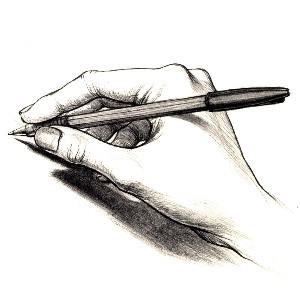
INDIVIDUAL RESEARCH
All students will complete an individual research project or field study. Students will begin their work by designing their own learning experiences. These field studies, which may constitute up to half the work of each quarter, can be anything (walking, reading, sailing, midwifery, writing, gardening, Aikido, hospice care, welding, cooking, meditation, etc.). The only restriction in this version of “Awareness” is that the project must be something you can write about. Yes, we know, one can write about anything, but we mean for the emphasis to be on the word “write.” You must fashion your independent work so that you will be able to craft a good piece of writing at the end. Your writing can take many forms: socio-historical inquiry, reportage, annotations, comedy, antilamentations, humor, fictionings of the present, manifestoes, confessions, statistics-based scandals, rants, incautious cautions, sightings, or prayers, but no poetry, plays, or, especially, plans. Necessarily you will find yourself appealing to the community of writers who have written about your topic. As always, rely on them to be able to do good work. These writers will guide you away from the beginner’s traps of over-explaining, misplacing emphases, not knowing when to quit, and boring your reader with tediousnesses.
First, you must determine what you want to learn and how you want to learn it. Keep in mind that learning means you will know something at the end of the program that you don’t know at the beginning. The faculty are here to help, guide, and notice learning; they are not here to celebrate who you are or what you already know.
Some of the 16 credits available from the program are yours to shape according to your particular interests. Begin by answering these four questions:
- What do you want to learn?
- How are you going to learn it?
- How are you going to know when you have learned it?
- What difference will it make?
Presentations
Answers to the Questions: Your answers to the four questions, which have been typed, double-spaced, word and grammar-checked, and proofread by two members of your peer group, are due at 8:30 am, Wednesday of the second week, October 3.
Mid-quarter presentations: Everyone will read a selection from their independent research. Each person will have 10 minutes to make a presentation to the class. Remember that one of the premises of the class is that knowledge is sensual, not only biblioscopic or bibliographic. So your writing should put us in your kayak, allow us to taste your bread, see your dance, hear the rain and the footfalls during your walks.... Whatever you read, remember that you are being given, and you are demanding, the attention of 36 people for 10 full minutes. Engage us.
Final Presentations: In the eighth week everyone will turn in final versions of their independent research projects. These are due at 8:30 am, Wednesday, November 14.
In week ten, students will present to the class the paragraph from the independent project that best describes the work and the paragraph from the self evaluation that describes the work. The class will make a judgment: Did your self evaluation tell the entire truth? This exercise is not intended to disparage the typical writing in self evaluations; the goal is to turn self evaluations into real pieces of writing.
Also in the tenth week your portfolio will be reviewed by three colleagues. The portfolio demonstrating learning in the independent research part of the program will consist of
- the final piece of writing itself
- a log of the work completed (dates, hours, activities)
- a journal providing detailed descriptions of what you did; the log should be contemporaneous, i.e., written as you go along
- a summary of what you learned from these activities (the summary should consist of one very well-crafted paragraph)
- a bibliography of the books, articles and other material used in the project; many of the entries in the bibliography will be annotated.



